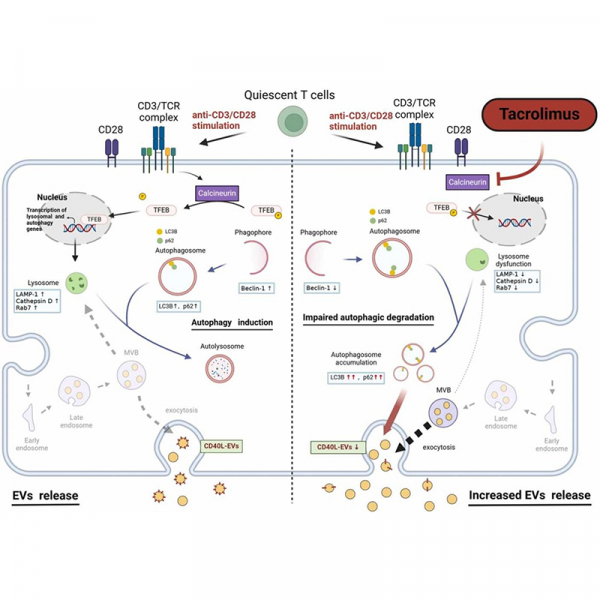Extracellular vesicles (EVs) derived from T cells have been proposed to mediate intercellular communication and orchestrate immune responses. The immunosuppressive drug, tacrolimus (TAC), suppresses T cell activity; however, the impact of TAC on T cell-derived EVs remains primarily unexplored. In this study, human primary T cells purified from healthy donors were used to investigate TAC-mediated regulation of EV secretion by T cells. Using size exclusion chromatography (SEC) to isolate EVs released by T cells, we found that the number of released EVs was increased upon anti-CD3/CD28 bead-mediated activation. Furthermore, pre-treatment with TAC before activation had a potentiating effect on EV release, as evidenced by western blot analysis of EV markers and small particle flow cytometry. In addition, we showed that EVs isolated from the plasma of TAC-treated kidney transplant patients were increased compared to those observed with pre-transplant plasma. Upon examining the mechanism underlying the action of TAC, we found that TAC impaired autophagy-lysosome-mediated degradation by inhibiting the nuclear translocation of transcription factor EB, a master regulator of lysosomal biogenesis. Notably, the addition of trehalose, an autophagy inducer, abrogated the TAC-induced EV release, indicating that TAC regulated EV secretion via the autophagy-lysosomal pathway. At the functional level, we demonstrated that EVs from TAC-treated T cells carried a decreased amount of CD40L, a protein critical for the activation of the adaptive immune response. Collectively, these findings demonstrate that an overall increase in EV production and decreased CD40L levels in EVs are characteristic responses of T cells to TAC.
